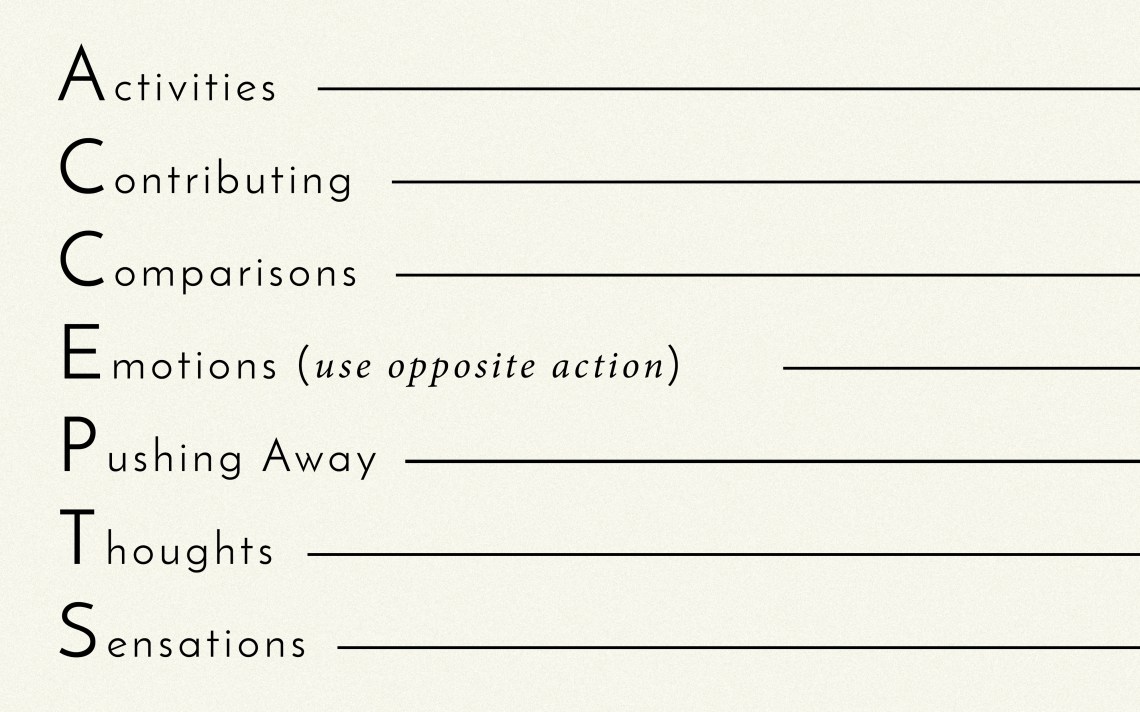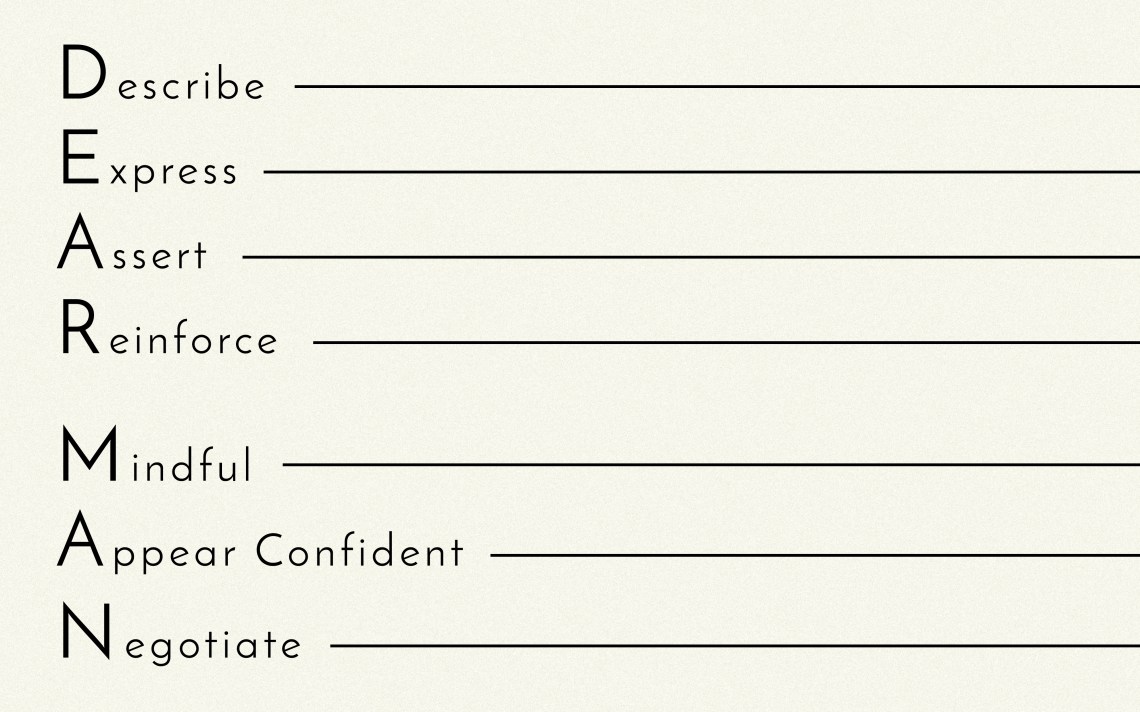
What Dialectical Behavior Therapy Is And How It Can Save Your Life
DBT is an evidence-based treatment proven by research to be effective for those suffering from post-traumatic stress disorder, substance abuse problems, eating disorders, Borderline Personality Disorder and depression.
Dialectical Behavior Therapy is an evidence-based treatment for those who struggle with chronic suicidal ideation, self-harm and extreme emotions. Combining Eastern mindfulness techniques with cognitive-behavioral methods, this unique and comprehensive treatment has been proven especially effective for highly vulnerable populations.
Do you feel like regular talk therapy falls short of dealing with the problems in your life? If you have a history of problems with self-harm, suicidal ideation, chronic suicide attempts or extreme and overwhelming emotions, you may want to consider speaking to a counselor about Dialectical Behavior Therapy.
What is Dialectical Behavior Therapy?
Dialectical Behavior Therapy (DBT) was developed by Dr. Marsha Linehan in the 1970’s as a way to treat suicidal patients diagnosed with Borderline Personality Disorder. DBT adapts certain aspects of Cognitive-Behavioral Therapy (CBT) to better suit clients with chronic suicidal thoughts or Borderline Personality Disorder.
DBT usually includes a combination of group therapy sessions (also known as “DBT Skills Groups”) along with individual psychotherapy sessions and a therapy consultation team that works together to best serve the needs of the client.
The Origins of DBT, Borderline Personality Disorder and Suicide
When Linehan realized that the standard CBT treatment was too focused on change and came across as invalidating to intensely distressed patients, she created DBT as a way to foster acceptance-based coping skills and techniques so her clients could feel validated prior to making life changes.
This was especially important for clients with Borderline Personality Disorder, a disorder which has been theorized to stem from childhood trauma and an emotionally invalidating environment. Individuals who have grown up chronically invalidated in toxic households or have a history of abusive relationships can potentially benefit from this treatment.
DBT is not only an evidence-based treatment for those with BPD, it has also been proven by research to be effective for those suffering from post-traumatic stress disorder, substance abuse problems, eating disorders and depression.
The Life Skills Taught By Dialectical Behavior Therapy: An Overview
DBT includes building the following life skills with the following modules.
Mindfulness. This module helps the individual learn techniques to be in the present moment and focus on one thing at a time. Using the principles of Zen Buddhism, the mindfulness life skills training enables the individual to slow down, breathe through their pain and use non-judgment to carefully observe what is happening in their surroundings, describe what they’re feeling and participate more fully in what is occurring. It is not uncommon for the individual DBT therapist or the DBT group therapist to begin a session their clients using a short meditation to help individuals get grounded in what they’re feeling and to observe their thoughts from a more objective place.
Emotional regulation. The emotion regulation life skills training module emphasizes the ability to reduce vulnerability by taking care of one’s mental and physical wellbeing. It redirects the individual to assess what needs are being neglected and what can be done to better build positive experiences and take actions to improve the present moment. This module enables the individual to better manage their emotions especially in times of acute duress.
Distress tolerance. This aspect focuses primarily on self-soothing, especially during in times of crisis, distress or triggering states of emotional arousal. This module encourages radical acceptance, which is a neutral acceptance of the present moment and one’s emotions without necessarily acting on impulses or condoning the harmful actions of others and unjust adverse circumstances.
Interpersonal effectiveness. Since the ability to healthily navigate conflict and social interactions plays such a crucial role in the mental health of particularly vulnerable populations, this module focuses on how we can both validate ourselves and others. It teaches clients how to appropriately set boundaries, see another’s perspective without engaging in black-and-white thinking, all while asserting needs with confidence and mindfulness.
Helpful Acronyms and Crisis Skills Used In DBT: Examples
There are some very helpful and comprehensive acronyms involved in DBT that can facilitate life skills training. Here are just a few examples.
FOR DISTRESS TOLERANCE
The “ACCEPTS” acronym helps you to get into a state of “wise mind” to deal more effectively with difficult emotions and situations.

Activities might include engaging in distracting pleasurable activities to provide some temporary relief and to give your mind a reprieve from the situation. Examples include going for a walk or run, listening to soothing music, going shopping, watching a favorite tv show or engaging in a hobby.
Contributing is a life skill that reminds you of all the people who are in need and also helps to build a sense of gratitude and social connection. You can contribute by donating to a charity, volunteering your time at an organization that supports a cause you care about, offering to help out a friend – there are countless ways to contribute that can help you to bring awareness to the larger picture.
Comparisons can be helpful especially when we are in crisis mode and feeling as if nothing will ever get better. However, it all depends on the particular person as to how they use comparisons, because not everyone will react similarly to these exercises. You might compare your life to what it was like years ago to see your progress or remember the lives of those who are struggling more than you. Find what works to make you feel better in the moment.
Emotions might mean you use an “opposite action” to deal effectively with the emotion you’re struggling with. This can help curb impulsive behavior and actually have an impact on your overall mood. For example, if you are feeling particularly angry, you might go out and do something calming (like going to a meditation workshop). If you’re feeling sad, you might opt for watching a happy movie or going to a stand-up comedy show.
Pushing away the situation means getting some emotional distance from it for a short period. You could imagine a physical barrier of some kind blocking you from the situation and refuse to ruminate over it as much. This is temporary and definitely not a long-term solution, as emotions have to be dealt with eventually. However, it does give you some respite from the pain until you’re ready to confront it.
Thoughts emphasizes the ability to distract yourself from thoughts about the situation until you’re fully ready. You might become engrossed in a book, do a puzzle or something else creative that can help you from becoming too overwhelmed by what you’re currently experiencing.
Sensations places the focus back on your five senses. Common examples include taking very hot or cold showers, holding an ice cube in your hand, snapping a rubber band on your wrist or any kind of stimulus that can shake up your senses and distract you from acting impulsively on any destructive urges you may have.
FOR INTERPERSONAL EFFECTIVENESS
The “DEAR MAN” acronym helps individuals master conflict and assert themselves in a healthy way:

Describing could entail stating the situation clearly to provide context. For example, if Debra wanted her sister to stop calling her after midnight, she might say something like, “You’ve been calling me after midnight a lot lately after I’ve already gone to sleep.”
Expressing your beliefs and opinions about the situation you’re describing is helpful so that the other person knows why this situation is problematic to you. Debra might then say something like, “When you call me at that hour, it really interrupts my sleep patterns and I feel groggy at work. I love talking to you and helping you out when you need it, but it would be best to call at an earlier hour.”
Asserting might look like Debra declaring her wishes, setting a boundary or saying no entirely. She could say something like, “I am going to have to keep my phone off after midnight. Please only call me at a late hour for emergencies, otherwise, we’ll have to reconnect at a more appropriate time.”
Reinforcing includes reinforcing someone’s ability to respect your wishes by “rewarding” them. This could range for a simple thank you for them understanding your needs or letting them know how much you appreciate it when the other person does respect your requests.
Staying mindful means remaining strong in your beliefs, focused on your objectives (having your rights respected) and refusing to be diverted. You might exercise the “broken record” technique to continue stating what you believe to be true or you may have to walk away from the conversation if the person on the receiving end is unwilling to see your perspective or threatens you.
Appearing confident even if you are nervous to set a boundary – such as maintaining eye contact, using a confident tone of voice, can also be useful to navigating conflict.
Negotiating could mean suggesting alternatives if the person isn’t willing to meet your request or simply asking, “I see we’ve reached a disagreement. How else can we solve this problem?” and engaging in a dialogue (if you assess that the other person is willing to engage in one in a non-abusive, non-threatening way).
Other helpful life skill acronyms from DBT
IMPROVE gives you the tools you need to improve the present moment so you can better cope with distress.
Imagery (visualize dealing successfully with whatever adverse circumstances you’re facing).
Meaning (find meaning in the pain or suffering you’re experiencing – what can be learned from this?)
Prayer (use prayer to self-soothe, surrender and reach out from help from a higher power).
Relaxation (engage in activities like yoga or meditation to help you relax and reset your body, especially if it is tense).
One thing at a time (focus on doing one thing at a time and the task at hand to enhance mindfulness and remove distraction or increased stress from dealing with too many emotions at once).
Vacation (take a break from the conflict, whether it requires physically removing yourself or simply mentally distancing yourself).
Encouragement (encourage yourself through affirmations, motivational reminders as well as remembering any positive feedback given to you).
PLEASE Mastery for reducing emotional vulnerability and effective emotional regulation.
P and L stand for (treating) Physical Illness (taking care of any illnesses or ailments that make you feel physically taxed or distressed)
Eating (in a nourishing, healthful manner)
Altering Drugs (avoiding mood-altering drugs unless you have a prescription)
Sleep (getting enough rest and establishing a regular sleep pattern)
Exercise (getting enough exercise every day can help to keep you in a balanced emotional state).
Mastery refers to the ability to use all of these to remain within “wise mind” which is a state of mindfulness and balanced self-control that allows you to deal with your emotions effectively without resorting to self-destructive behavior.
Speak To Your Therapist About Dialectical Behavior Therapy
This is just a sample of the ways in which Dialectical Behavior Therapy can help you to master your emotions and lead a healthier, more fulfilling life. There are, of course, so many more life skills and helpful suggestions available to you if you become a recipient of DBT with a trained and licensed professional.
Be sure to consult with your therapist to assess whether DBT might be the right fit for you and your unique needs. Although DBT is not for everyone, it can be incredibly life-saving to those who are particularly vulnerable, especially in times of severe crisis or distress. ![]()











